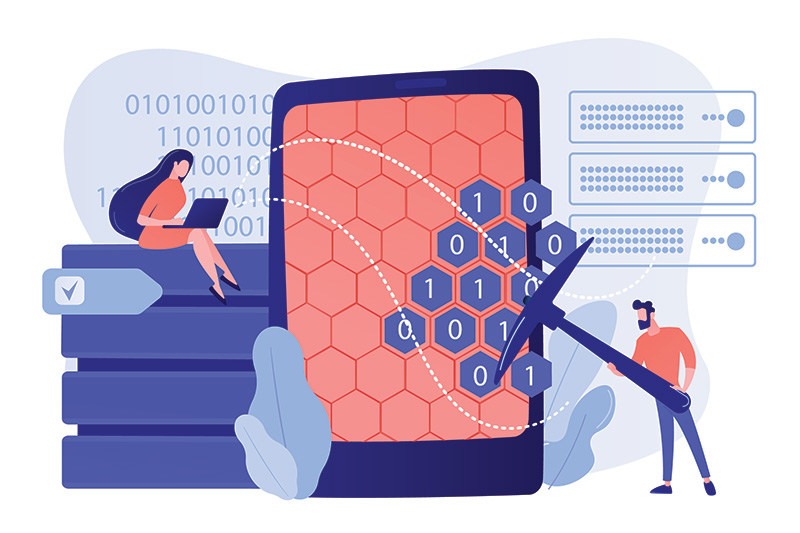Ineffective recruitment for clinical trials can be a huge source of frustration, wasted time, and effort. When sponsors elect to accelerate the recruitment process, this often results in protocol amendments that only serve to add time and resources to the overall lifecycle. With this in mind, can AI in clinical trials offer a more streamlined approach to recruiting a more diverse and inclusive cohort of patients?
Recent federal legislation for more comprehensive diversity, equity, and inclusion (DEI) in clinical trials means that failing to increase the number of diverse and multicultural patients in your studies can lead to troublesome and expensive clinical and legal consequences.
With the need for a broader, faster, and more meticulous approach to recruiting patients, the innovations that AI in clinical trials and data mining offer may be the answer to recruiting a variety of different patients.
Why It’s So Important to Get a Patient Profile Right
Of course, the patient profile must be correct from the start. Patient profiling allows you to gain deeper, broader insights into potential participants representing numerous backgrounds, allowing practitioners to improve upon current information and help with future diagnoses, safer treatments, and a better understanding of the causes of many illnesses.
To achieve this, sponsors are required to identify a broad spectrum of potential trial participants as part of their recruitment strategies. In many cases, the success of your patient profiling will determine the success of the clinical trial itself. Failing to create an accurate, comprehensive patient profile can lead to several potential issues, including:
- Hours of wasted time that offer no real value or depth to your trial/study
- Patient profiles that do not properly align with the protocol
- Weeks or even months of wasted resources
- A failure to adhere to compliance guidelines and federal legislative measures
- Increasing costs without the ability to apply findings effectively
How AI in Clinical Trials and Data Mining in Recruiting Can Help
The above issues represent a few of the primary consequences associated with ineffective patient recruiting. By utilizing AI and other innovations in clinical trial recruitment, these risks can be significantly reduced. Here are some of the ways in which AI and data mining can prevent these issues.
A Wider Range of Potential Participants
Screening a wider range of people during a clinical trial can provide a better understanding of how devices and medications will work on patients from a wide range of cultures and backgrounds. Essentially, using artificial intelligence in clinical trials can help close the gap formed by a lack of diversity in patients studied.
Greater Accuracy
AI can delve into relevant online information, available records, and social media in order to identify and engage a more diverse range of patients for clinical trial consideration. Having a wider range of people maintains compliance requirements and reduces wasted time and costs while also ensuring greater equity across the board.
Streamlined Recruitment
Accurate recruitment using artificial intelligence contributes to study compliance through faster clinical trial alerts across a wide range of channels.
More Data and Less Work
Data mining in patient recruiting can provide vast amounts of key data with minimal time and resources. The goal of any data mining platform is to evaluate huge volumes of information and identify patterns that could be useful to any particular study. Within these patterns is the potential to plan or predict trends, helping to better prepare for them and analyze the reasons why they occur.
Simplified Processes for All
A simpler and repeatable process for both patient recruiters and potential study participants will yield greater interest and engagement, and an overall improved experience from a more diverse population. Previous barriers related to health literacy, culture, language or accessibility are far less likely. With entry criteria simplified, all parties involved develop a mutual comprehension of the expectations related to participation.
AI in Clinical Trials: Final Thoughts
A rushed and overly complicated clinical trial patient recruitment process can cause unnecessary issues within what could be a well thought-out, cohesive process focused on patient experience. And with the Consolidated Appropriations Act now championing more transparency in healthcare, the optimized process of AI screening has never been more important or useful.
Ensuring effective recruitment of multicultural patients for clinical trials is no longer just a great idea—it is a legal responsibility and a business imperative. AI and data mining can assist you in creating credibility and trust, and ultimately finding motivated, informed, and eager participants from a broad range of backgrounds and cultures for the benefit of your patients, future studies, and the success of your treatments.
By leveraging AI and data mining technologies, we are better equipped to understand how medical issues affect multicultural patients, broadening our abilities to prevent diseases across all ethnicities, ages, genders, and socioeconomic backgrounds.
If you would like to discuss this further, we’d love to chat! Please contact us today.



